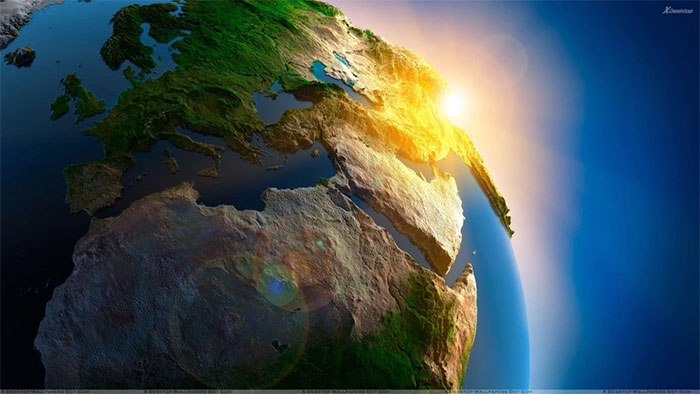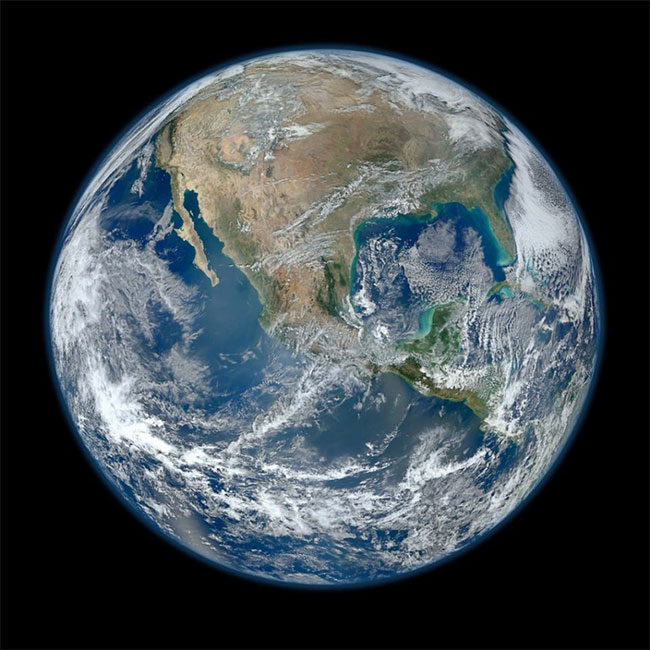People often say “as old as the Earth.” However, the origin of the name “Earth” remains a mystery to many.
Seven of the eight planets in our Solar System are named after ancient Greek or Roman deities. Yet, Earth – the place we inhabit – is the only exception.

The origin of the name Earth is still a topic of debate.
According to scientists, the word “earth” (in English, “Earth”) is derived from the Old English term “eorþe”. Eorþe has several meanings, including “soil,” “ground,” “dry land,” and “wet land.”
“Earth” and “eorþe” are also related to the modern German term “Erde.” This is not only the German name for the blue planet but can also refer to dirt or soil.
Further back, linguists have found numerous references to Earth in Old Saxon as “ertha,” and “erthe” in Old Frisian, as well as “eretz” (ארץ) in Hebrew, all recorded in ancient texts.
However, no one knows when humans began using terms like “Earth” or “Erde” to refer to the entire planet rather than just the ground beneath their feet.
Some documents suggest that the name Earth has existed for thousands of years. Yet, in reality, it may have originated even further back. Some hypotheses propose that the name “Earth” could date back to prehistoric times when our ancestors decided to name their “home” as Earth – because for them, Earth was the place where life begins and ends.
As we know, soil has the ability to support plant growth and serves as a habitat for various forms of animal life, from microorganisms to small animals.

Earth as seen from the International Space Station (ISS). (Photo: NASA).
“Soil is a natural entity with different origins and developmental histories, characterized by complex and diverse processes occurring within it,” stated V.V. Dokuchaev, a Russian scientist and pioneer in soil science.
From a scientific perspective, soil is crucial for all forms of life on Earth, as it supports plant growth, which in turn provides food and oxygen (O2) while absorbing carbon dioxide (CO2) and generating food for humans.
Only later did humans discover that 70% of our planet is actually covered in water. However, by that time, humans may have already been “stuck” with the name Earth.
There is also a hypothesis that no one actually named Earth; rather, they were simply referring to moving on the ground. Over time, as concepts of planets developed, the place we live transitioned from “the ground” to “Earth.”
“People used to talk about standing on ‘the ground’ before realizing that Earth is a planet like other planets,” said Mark Shainblum, a professor at Concordia University, Canada. “No one named it. It was just a common term for English speakers, with equivalent words in other languages like terra, tiera, terre…”.


















































